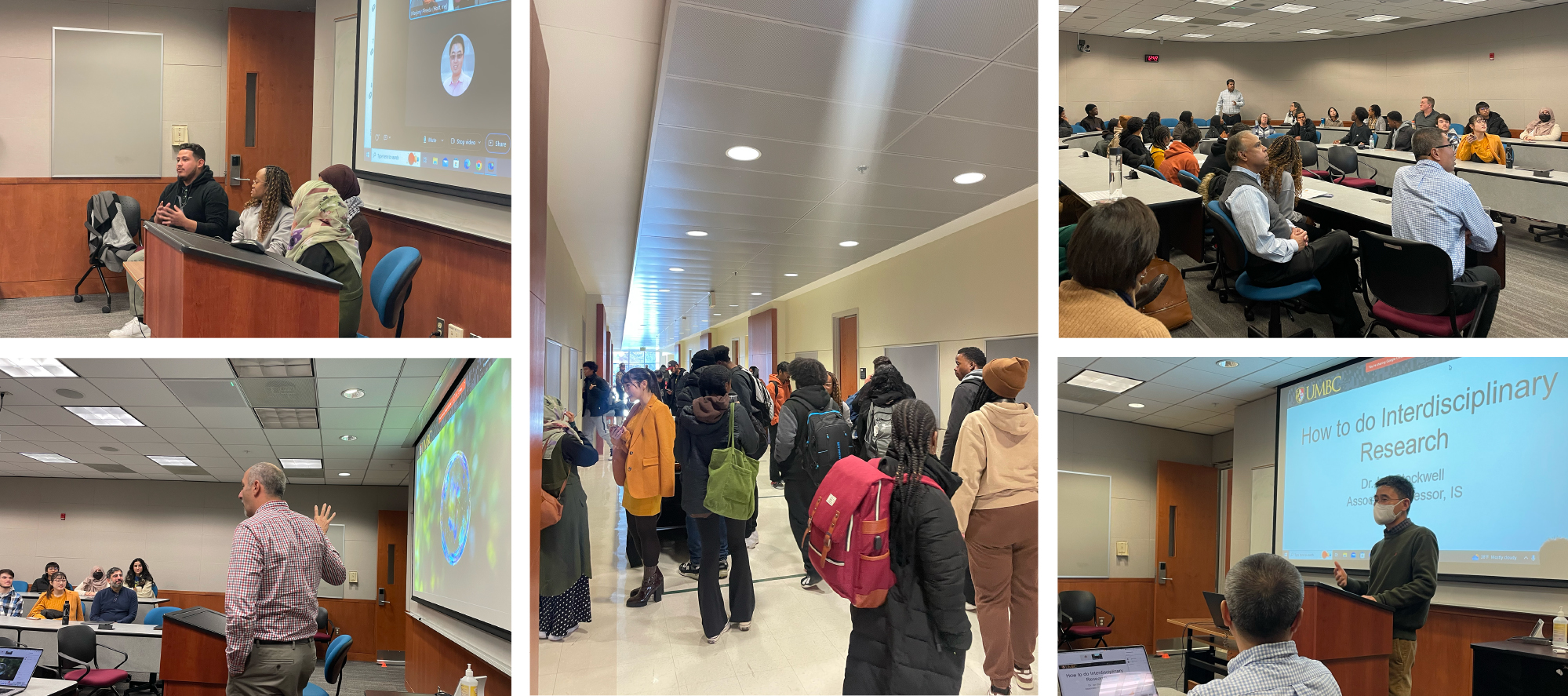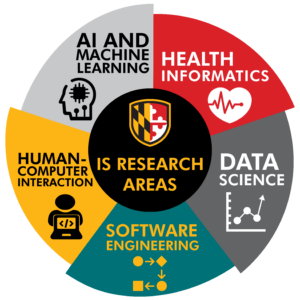Public Research for Public Good
UMBC is a public research university leading the world in inclusive excellence in research. Our research aims to further innovation in Information Systems through inclusive interdisciplinary partnerships and collaborations. We are committed to recruiting and retaining faculty with a passion for civically engaged research.
Research Centers
The Department of Information Systems is home to six dynamic research centers that foster innovation, interdisciplinary collaboration, and real-world impact. From artificial intelligence and data science to human-centered computing, climate change, and autonomous systems, these centers advance discovery while creating transformative opportunities for students and partners alike.
Visit our Research Center webpage to learn more about our centers; CARDS, CARTA, CYPRESS, iHARP, ISRC, and ScaleS
Research News
Stay up to date with the latest research news from UMBC’s Department of Information Systems. Our faculty and students are advancing knowledge at the intersection of data, design, and innovation, exploring areas such as artificial intelligence, human-centered computing, health IT, and cybersecurity. Visit this section regularly to learn about recent publications, awards, collaborations, and projects that are shaping the future of information systems.
Research Areas
Our faculty conduct interdisciplinary research in five complementary, core areas to design, develop and implement Information Systems to investigate real world problems, including climate change, cybersecurity, accessibility, and the future of work.
Study of AI techniques for language, vision, and sensor processing and fair machine learning.
Study of data lifecycle processes, big data analytics, cybersecurity analytics, and data mining.
Study of informatics and information technology to serve healthcare.
Study of the design and use of interactive technology.
Study of the people, processes, and techniques that create robust software applications.
Student Research

We are committed to mentoring students in research. Participating in research helps students develop their critical thinking, build transferable skills, and explore potential careers. The mentoring relationships built between students and faculty can last a lifetime and benefit both parties.
The department now uses a central form (complete the form using your UMBC email address) to collect research interests from our undergraduate and graduate students to help match students with projects (or opportunities) supervised by IS faculty. Please use this form, instead of direct email to individual faculty, to express your interest in conducting research with IS faculty. If a faculty member is interested in working with you, they will contact you directly.
